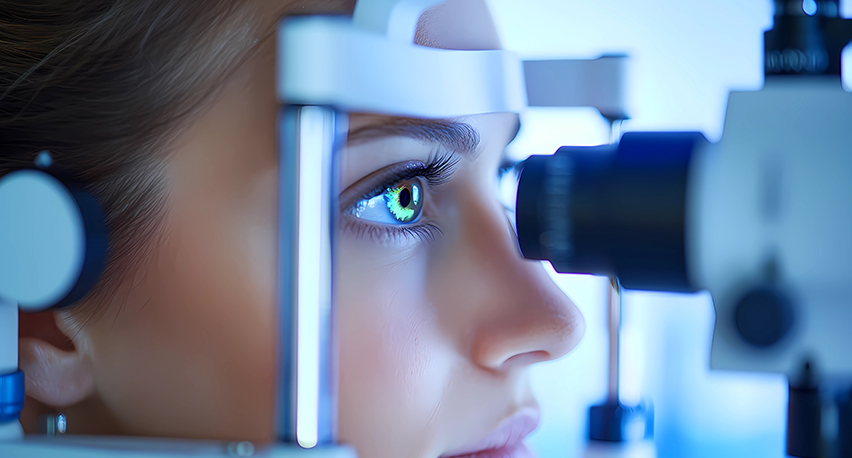Dispelling Myths about Eye Health: Insights from an Ophthalmologist
Eyes are often considered the windows to the soul, and maintaining their health is crucial for overall well-being. Despite the abundance of information available, many myths about eye health persist. In this article, we’ll debunk some common misconceptions with insights from an ophthalmologist and provide practical lifestyle tips to keep your eyes healthy.
Introduction
Eye health is a critical aspect of our overall health that often gets overlooked. Misconceptions about how to care for our eyes can lead to unnecessary worries or, worse, neglect of essential eye care practices. Let’s clear up these myths and get to the facts.
Common Myths about Eye Health
1. Myth: Reading in Dim Light Damages Your Eyes
Fact: Reading in dim light does not cause permanent eye damage, but it can cause eye strain. Your eyes have to work harder to focus in low light, which can lead to temporary discomfort, headaches, or dry eyes. Using adequate lighting can help reduce eye strain.
2. Myth: Sitting Too Close to the TV Will Ruin Your Eyes
Fact: Sitting close to the television won’t damage your eyes, but it can cause eye strain, especially for children. It might be a sign that they need glasses. Ensuring regular eye check-ups can help address any underlying vision issues.
3. Myth: Carrots Are the Only Food Good for Your Eyes
Fact: While carrots are rich in beta-carotene, which is good for eye health, a balanced diet with a variety of nutrients is essential. Foods rich in omega-3 fatty acids, vitamins C and E, zinc, and lutein, such as leafy greens, fish, and citrus fruits, are also important for maintaining eye health.
4. Myth: Wearing Glasses Will Make Your Vision Worse
Fact: Wearing glasses does not worsen your vision. Glasses correct your vision and help reduce eye strain. Not wearing prescribed glasses can cause discomfort and may worsen vision problems over time due to the strain of trying to see clearly.
5. Myth: Eye Exercises Can Improve Your Vision
Fact: Eye exercises do not cure vision problems or improve vision significantly. Conditions like nearsightedness, farsightedness, or astigmatism are structural issues that need corrective lenses or surgery. However, eye exercises can help reduce eye strain and improve eye comfort.
6. Myth: You Don’t Need an Eye Exam Unless You Have Problems
Fact: Regular eye exams are crucial, even if you don’t notice any vision problems. Eye exams can detect conditions like glaucoma, macular degeneration, and diabetic retinopathy early, preventing serious vision loss.
7. Myth: Contact Lenses Are Uncomfortable and Unsafe
Fact: Modern contact lenses are designed for comfort and safety. Proper hygiene and following your eye care professional’s instructions are key to avoiding complications. Many people find contact lenses to be a convenient and comfortable vision correction option.
Lifestyle Tips for Healthy Eyes
1. Eat a Balanced Diet
A healthy diet is fundamental for good eye health. Include foods rich in vitamins A, C, and E, zinc, lutein, and omega-3 fatty acids. Leafy greens, fish, nuts, and fruits are excellent choices. These nutrients help protect against cataracts and age-related macular degeneration.
2. Practice Good Hygiene with Contact Lenses
If you wear contact lenses, follow proper hygiene practices to prevent infections. Wash your hands before handling lenses, use the recommended cleaning solutions, and replace your lenses as directed by your eye care professional.
3. Protect Your Eyes from UV Rays
Prolonged exposure to ultraviolet (UV) rays can increase the risk of cataracts and other eye conditions. Wear sunglasses that block 100% of UVA and UVB rays. Wide-brimmed hats can also provide additional protection.
4. Follow the 20-20-20 Rule
To reduce eye strain, especially if you spend long hours in front of screens, follow the 20-20-20 rule: every 20 minutes, look at something 20 feet away for at least 20 seconds. This helps relax the eye muscles and reduce fatigue.
5. Stay Hydrated
Proper hydration is essential for overall health, including eye health. Drinking enough water helps maintain the moisture balance in your eyes, preventing dryness and irritation.
6. Don’t Smoke
Smoking increases the risk of developing age-related eye diseases, such as macular degeneration and cataracts. It also damages the optic nerve. Quitting smoking can significantly improve your eye health and overall well-being.
7. Get Regular Eye Exams
Regular eye exams are vital for detecting problems early and maintaining eye health. Adults should have a comprehensive eye exam at least once every two years, or more frequently if recommended by an eye care professional.
8. Manage Chronic Conditions
Chronic conditions like diabetes and hypertension can affect your vision. Managing these conditions through medication, diet, and regular check-ups can help prevent complications like diabetic retinopathy and hypertensive retinopathy.
9. Use Protective Eyewear
When engaging in activities that pose a risk to your eyes, such as playing sports or working with hazardous materials, wear appropriate protective eyewear. This can prevent injuries that could lead to permanent vision loss.
10. Limit Screen Time
Excessive screen time can cause digital eye strain. Take regular breaks, adjust screen brightness, and use anti-glare screens to reduce the strain on your eyes. Ensure your screen is positioned at an appropriate distance and angle.
Conclusion
Understanding the facts about eye health and dispelling common myths can help you take better care of your eyes. By following practical lifestyle tips and maintaining regular eye exams, you can protect your vision and enjoy healthy eyes for years to come. For top-notch eye care, visit Eden Health Center. Their expert team provides comprehensive eye care services to help you maintain optimal vision and overall eye health.

